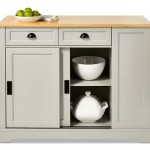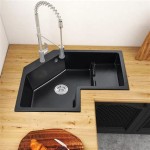Stone Floor Tiles for Kitchens: Durability, Style, and Versatility
Stone floor tiles are a popular choice for kitchens due to their durability, style, and versatility. They are resistant to scratches, stains, and heat, making them ideal for a high-traffic area like the kitchen. Stone tiles also come in a wide variety of colors, textures, and patterns, allowing homeowners to create a unique and personalized look.
Durability and Longevity
Stone floor tiles are known for their exceptional durability and longevity. Their natural hardness makes them resistant to scratches and dings, even from heavy appliances and furniture. This durability ensures that your kitchen floor will remain in good condition for years to come, reducing the need for frequent repairs or replacements. Unlike some materials that can be susceptible to staining, stone tiles are highly resistant to stains from spills, food, and everyday wear and tear. This stain resistance makes them perfect for a kitchen environment where spills and messes are inevitable. Additionally, stone tiles are naturally heat-resistant, making them suitable for areas near stoves and ovens.
Aesthetic Versatility and Style
Stone floor tiles offer a wide range of aesthetic options to suit any kitchen style. From the classic elegance of marble to the rustic charm of slate, there is a stone tile to complement every design preference. The natural variations and patterns of stone create unique visual interest, adding depth and character to a kitchen. The color palette of stone tiles is extensive, ranging from cool grays and blues to warm browns, reds, and yellows. This variety allows homeowners to create a cohesive look with their cabinets, countertops, and backsplash.
Stone tiles can be used to create a variety of design patterns, including herringbone, basketweave, and subway tile layouts. These patterns add visual interest and complexity to the floor, enhancing the overall design of the kitchen. The texture of stone tiles also adds another dimension to the kitchen's aesthetic appeal. Smooth polished tiles offer a clean and sleek look, while textured tiles provide a rustic and tactile experience.
Types of Stone Floor Tiles Commonly Used in Kitchens
Several types of stone are commonly used for kitchen floor tiles. Each stone type has distinct characteristics that make it suitable for specific kitchen styles and design preferences:
Marble
Marble is a luxurious and elegant option, known for its veining patterns and classic appeal. It is a softer stone, making it susceptible to scratches and etching. However, its beauty and timeless elegance make it a popular choice for upscale kitchens.
Granite
Granite is a highly durable and resistant stone that can withstand heavy wear and tear. It comes in a wide variety of colors and patterns, making it versatile for different kitchen styles. Granite is also a good choice for kitchens with a modern, industrial design aesthetic.
Slate
Slate is a natural stone known for its rustic and earthy appearance. It is a durable and slip-resistant option, making it suitable for kitchens with a traditional or farmhouse style. Slate tiles are often used for floors and backsplashes, creating a cohesive and inviting look.
Travertine
Travertine is a porous stone with a unique, textured surface. It is often used for floors and backsplashes to add warmth and character to a kitchen. Travertine is available in a range of colors, from warm browns to cooler grays, making it versatile for different design styles.
Limestone
Limestone is a sedimentary stone that is known for its soft, warm tones and earthy appearance. It is a good choice for kitchens with a traditional or rustic style. Limestone is a porous stone, so it may require sealing to protect it from stains.
Maintenance and Care of Stone Floor Tiles
While stone tiles are durable, they require regular maintenance to maintain their beauty and protect them from damage. Here are some tips for maintaining stone floor tiles in kitchens:
•
Regular Cleaning:
Sweep or vacuum stone floor tiles regularly to remove dirt and debris. Mop the floor with a mild cleaning solution specifically designed for stone tiles. Avoid using harsh cleaners or abrasive scrubbers that can damage the surface.•
Sealing:
Sealing stone tiles is essential to protect them from stains and spills. Apply a sealant to the tiles regularly, following the manufacturer's instructions. Sealing helps to create a protective barrier that prevents stains from penetrating the stone.•
Spot Cleaning:
If spills occur, clean them up immediately with a damp cloth. Avoid allowing spills to sit on the stone for extended periods, as they can lead to staining.•
Professional Cleaning:
Consider having your stone floor tiles professionally cleaned and sealed every few years to maintain their appearance and durability.
Best Stone Floors For Kitchens Blog Quorn

How To Lay Natural Stone Tiles Quorn

Natural Stone Flooring Tiles Modern Kitchen Other By Resido Houzz

Five Stunning Stone Kitchen Flooring Ideas Stamford At Home

Natural Stone Flooring Stoneworld Oxfordshire

White Stone Effect Floor Tiles For Classic And Modern Designs Free Samples

The Pros And Cons Of Natural Stone Floor Tiles Marble Systems

How To Get The Best Out Of Your Natural Stone Kitchen Floor

Kitchen Tiles Natural Stone Online

Ultimate Kitchen Flooring Guide Ideas And Materials








